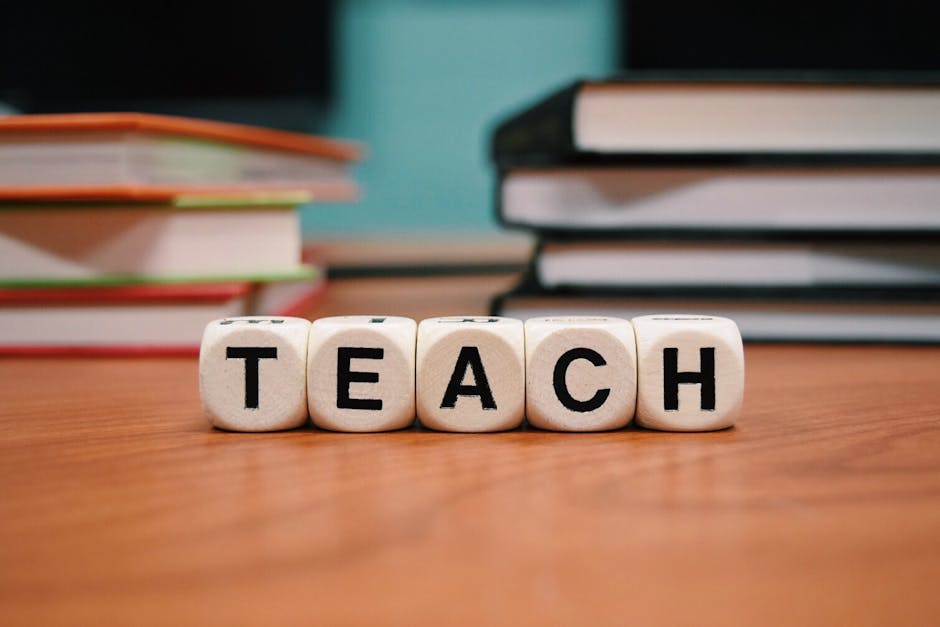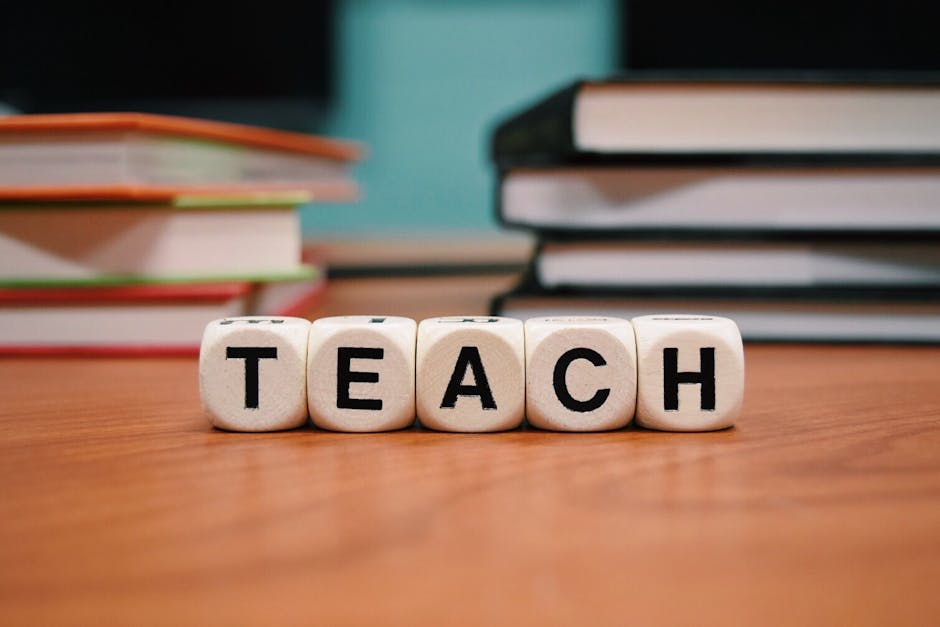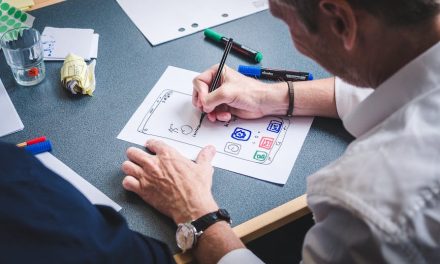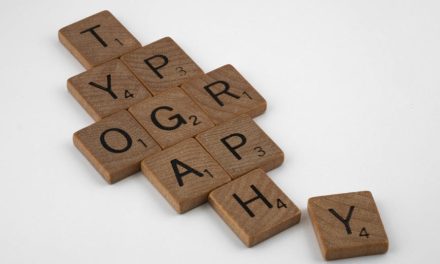Table of Contents
- Introduction
- The Impact of Education on Personal Growth
- Strategies for Maximizing Learning Potential
- Overcoming Educational Barriers to Success
- The Role of Mentorship in Unlocking Potential
- Harnessing the Power of Lifelong Learning
- Education as a Tool for Social Mobility
- Cultivating a Growth Mindset through Education
- The Connection Between Education and Empowerment
- Unlocking Creativity and Innovation through Education
- Q&A
- Conclusion
“Unlocking Potential: Empowering Minds, Changing Lives”
Introduction
Unlocking Potential: The Power of Education
Education is a powerful tool that has the ability to unlock the potential of individuals and societies. By providing access to knowledge, skills, and opportunities, education can empower individuals to reach their full potential and contribute positively to their communities. In this article, we will explore the transformative power of education and the ways in which it can help individuals overcome barriers, achieve their goals, and create a better future for themselves and others.
The Impact of Education on Personal Growth
Education is often seen as a key factor in personal growth and development. It has the power to unlock potential and open doors to new opportunities. The impact of education on personal growth is profound, shaping individuals into well-rounded, knowledgeable, and skilled individuals. In this article, we will explore the ways in which education can transform lives and empower individuals to reach their full potential.
One of the most significant ways in which education impacts personal growth is through the acquisition of knowledge. Education provides individuals with the opportunity to learn about a wide range of subjects, from history and science to literature and mathematics. This knowledge not only broadens one’s understanding of the world but also helps to develop critical thinking skills and problem-solving abilities. By expanding their knowledge base, individuals are better equipped to navigate the complexities of life and make informed decisions.
Furthermore, education plays a crucial role in shaping individuals’ values and beliefs. Through exposure to different ideas and perspectives, individuals are able to develop a more nuanced understanding of the world around them. Education encourages individuals to question their assumptions and beliefs, fostering a sense of intellectual curiosity and openness to new ideas. This process of self-reflection and introspection is essential for personal growth, as it allows individuals to develop a deeper understanding of themselves and their place in the world.
In addition to knowledge and values, education also equips individuals with practical skills that are essential for success in today’s world. From communication and problem-solving to time management and teamwork, education provides individuals with the tools they need to thrive in both their personal and professional lives. By honing these skills, individuals are better prepared to face the challenges and opportunities that come their way, enabling them to achieve their goals and fulfill their potential.
Moreover, education has the power to instill a sense of confidence and self-efficacy in individuals. By mastering new concepts and skills, individuals gain a sense of accomplishment and pride in their abilities. This confidence not only boosts self-esteem but also empowers individuals to take on new challenges and pursue their passions with determination and resilience. Education provides individuals with the belief that they are capable of achieving great things, motivating them to strive for excellence in all areas of their lives.
Ultimately, the impact of education on personal growth is far-reaching and transformative. By providing individuals with knowledge, values, skills, and confidence, education empowers them to reach their full potential and lead fulfilling lives. Education is not just about acquiring information; it is about shaping individuals into well-rounded, knowledgeable, and skilled individuals who are capable of making a positive impact on the world around them. As Nelson Mandela once said, “Education is the most powerful weapon which you can use to change the world.” It is through education that individuals can unlock their potential and create a brighter future for themselves and others.
Strategies for Maximizing Learning Potential
Education is often seen as the key to unlocking one’s full potential. It provides individuals with the knowledge, skills, and opportunities needed to succeed in life. However, not all educational experiences are created equal. In order to maximize learning potential, it is important to implement effective strategies that cater to the diverse needs of students.
One strategy for maximizing learning potential is to create a supportive and inclusive learning environment. Research has shown that students learn best when they feel safe, valued, and respected in the classroom. By fostering a sense of belonging and community, educators can help students feel more motivated and engaged in their learning. This can be achieved through activities such as team-building exercises, group discussions, and peer-to-peer collaboration.
Another important strategy for maximizing learning potential is to provide students with personalized learning experiences. Every student is unique, with their own strengths, weaknesses, and learning styles. By tailoring instruction to meet the individual needs of each student, educators can help them reach their full potential. This can be done through differentiated instruction, flexible grouping, and the use of technology to provide personalized feedback and support.
In addition to creating a supportive and inclusive learning environment and providing personalized learning experiences, educators can also maximize learning potential by setting high expectations for all students. Research has shown that students are more likely to succeed when they are challenged and held to high standards. By setting clear goals and expectations, educators can help students push themselves to achieve their full potential. This can be done through the use of formative assessments, feedback, and goal-setting activities.
Furthermore, educators can maximize learning potential by fostering a growth mindset in their students. A growth mindset is the belief that intelligence and abilities can be developed through hard work, effort, and perseverance. By encouraging students to embrace challenges, learn from their mistakes, and persist in the face of obstacles, educators can help them develop a positive attitude towards learning and achieve greater success. This can be done through the use of praise, encouragement, and the promotion of a growth mindset culture in the classroom.
In conclusion, maximizing learning potential requires a multifaceted approach that takes into account the diverse needs of students. By creating a supportive and inclusive learning environment, providing personalized learning experiences, setting high expectations, and fostering a growth mindset, educators can help students unlock their full potential. Ultimately, education is a powerful tool that has the ability to transform lives and open doors to endless opportunities. By implementing effective strategies for maximizing learning potential, educators can help students reach new heights and achieve their dreams.
Overcoming Educational Barriers to Success
Education is often hailed as the key to unlocking one’s potential and achieving success. However, for many individuals, barriers to education can hinder their ability to reach their full potential. These barriers can take many forms, including financial constraints, lack of access to quality education, and societal prejudices. In this article, we will explore some of the common educational barriers that individuals face and discuss strategies for overcoming them.
One of the most significant barriers to education is financial constraints. Many individuals come from low-income families that struggle to afford the cost of tuition, books, and other educational expenses. As a result, these individuals may be forced to forgo higher education or settle for lower-quality educational opportunities. This lack of access to education can have long-lasting consequences, limiting individuals’ career prospects and perpetuating cycles of poverty.
To address this barrier, it is essential for policymakers to prioritize funding for education and provide financial assistance to students in need. Scholarships, grants, and student loans can help alleviate the financial burden of education and make it more accessible to individuals from all socioeconomic backgrounds. Additionally, institutions can offer flexible payment plans and work-study programs to help students finance their education while gaining valuable work experience.
Another common barrier to education is the lack of access to quality educational opportunities. In many communities, schools may be underfunded and understaffed, leading to subpar learning environments and limited resources for students. Additionally, individuals in rural or remote areas may face challenges accessing educational institutions due to transportation issues or limited infrastructure.
To overcome this barrier, it is crucial to invest in improving the quality of education in underserved communities. This can involve increasing funding for schools, hiring qualified teachers, and providing students with access to technology and other resources. Additionally, online learning platforms and distance education programs can help bridge the gap for individuals in remote areas, allowing them to access quality education from anywhere in the world.
Societal prejudices and discrimination can also pose significant barriers to education for marginalized groups. Individuals from minority backgrounds, LGBTQ+ individuals, and individuals with disabilities may face discrimination and bias in educational settings, leading to lower academic achievement and limited opportunities for advancement. This systemic inequality can perpetuate cycles of poverty and limit individuals’ ability to reach their full potential.
To address this barrier, it is essential to promote diversity and inclusion in educational institutions and create safe and supportive environments for all students. Anti-discrimination policies, cultural competency training for educators, and support services for marginalized groups can help create a more inclusive educational system that values diversity and promotes equity. Additionally, representation matters – ensuring that students see themselves reflected in their teachers, curriculum, and educational materials can help empower individuals from marginalized backgrounds and inspire them to succeed.
In conclusion, overcoming educational barriers is essential for unlocking individuals’ potential and creating a more equitable society. By addressing financial constraints, improving access to quality education, and promoting diversity and inclusion, we can help individuals overcome the obstacles that stand in the way of their success. Education is a powerful tool that can transform lives and open doors to new opportunities – let’s work together to ensure that everyone has the chance to reach their full potential.
The Role of Mentorship in Unlocking Potential

Education has long been recognized as a powerful tool for unlocking human potential. By providing individuals with knowledge, skills, and opportunities, education can open doors to a brighter future and help individuals reach their full potential. However, the impact of education can be further enhanced through mentorship. Mentorship plays a crucial role in guiding individuals, providing support, and helping them navigate the challenges they may face on their educational journey.
Mentorship is a relationship in which a more experienced or knowledgeable person provides guidance, support, and advice to a less experienced individual. In the context of education, mentors can be teachers, professors, counselors, or other professionals who have expertise in a particular field. They can offer valuable insights, share their own experiences, and provide encouragement to help students succeed.
One of the key benefits of mentorship is that it can help students set and achieve their educational goals. By working closely with a mentor, students can develop a clear understanding of their strengths, weaknesses, and interests, and create a plan to achieve their academic objectives. Mentors can provide guidance on course selection, career planning, and other important decisions, helping students stay on track and make informed choices about their education.
In addition to academic support, mentors can also offer emotional support and encouragement to students. The educational journey can be challenging, and students may face obstacles such as self-doubt, stress, or lack of motivation. A mentor can provide a listening ear, offer words of encouragement, and help students build resilience and confidence in their abilities. By fostering a supportive and nurturing relationship, mentors can help students overcome obstacles and stay motivated to achieve their goals.
Furthermore, mentorship can help students develop important skills such as critical thinking, problem-solving, and communication. By working closely with a mentor, students can learn from their mentor’s expertise and experience, and develop the skills they need to succeed in their chosen field. Mentors can provide feedback on assignments, help students develop their research skills, and offer guidance on how to navigate the academic and professional world.
Mentorship can also help students build a professional network and connect with potential employers. Mentors can introduce students to industry professionals, provide recommendations, and help students explore internship and job opportunities. By leveraging their mentor’s connections and expertise, students can gain valuable insights into their chosen field and increase their chances of success in the job market.
In conclusion, mentorship plays a crucial role in unlocking the potential of students and helping them succeed in their educational journey. By providing guidance, support, and encouragement, mentors can help students set and achieve their educational goals, develop important skills, and build a professional network. Through mentorship, students can overcome obstacles, stay motivated, and reach their full potential. As we continue to recognize the power of education in transforming lives, let us also acknowledge the important role that mentorship plays in helping students unlock their potential and achieve their dreams.
Harnessing the Power of Lifelong Learning
Education is often seen as the key to unlocking one’s potential and achieving success in life. From a young age, we are taught that education is important and that it can open doors to opportunities that would otherwise be out of reach. However, the power of education goes beyond just acquiring knowledge and skills; it has the ability to transform lives and empower individuals to reach their full potential.
One of the most significant benefits of education is its role in fostering lifelong learning. Lifelong learning is the concept of continuously seeking out new knowledge and skills throughout one’s life, even after formal education has ended. This commitment to learning not only keeps the mind sharp and engaged but also allows individuals to adapt to the ever-changing demands of the modern world.
Research has shown that individuals who engage in lifelong learning are more likely to be successful in their careers and personal lives. By staying curious and open to new ideas, they are able to stay ahead of the curve and remain competitive in a rapidly evolving job market. Lifelong learners are also more adaptable and resilient, able to navigate challenges and setbacks with a growth mindset that sees every obstacle as an opportunity for growth.
Furthermore, lifelong learning has been linked to improved mental health and overall well-being. By challenging oneself to learn new things, individuals can boost their self-esteem and sense of accomplishment. This sense of fulfillment can lead to increased happiness and satisfaction with life, as well as a greater sense of purpose and direction.
In addition to the personal benefits of lifelong learning, there are also broader societal advantages. A population that values education and lifelong learning is more likely to be innovative and creative, leading to advancements in technology, science, and the arts. This culture of learning can also foster a sense of community and collaboration, as individuals come together to share their knowledge and expertise for the greater good.
However, despite the numerous benefits of lifelong learning, not everyone has equal access to educational opportunities. Socioeconomic factors, geographic location, and systemic barriers can all prevent individuals from pursuing their educational goals. In order to truly harness the power of lifelong learning, it is essential to address these disparities and create a more inclusive and equitable education system.
One way to promote lifelong learning is through the use of technology. Online courses, webinars, and virtual workshops have made it easier than ever for individuals to access educational resources from anywhere in the world. These digital platforms can provide a wealth of information on a wide range of topics, allowing individuals to tailor their learning experience to their specific interests and goals.
Another way to support lifelong learning is through community-based programs and initiatives. Local libraries, community centers, and adult education programs can offer a variety of classes and workshops for individuals of all ages and backgrounds. These resources can provide a supportive environment for individuals to learn and grow, while also fostering a sense of belonging and connection within the community.
In conclusion, lifelong learning is a powerful tool that can help individuals unlock their full potential and lead fulfilling lives. By embracing education as a lifelong journey, individuals can continue to grow and evolve, both personally and professionally. Through access to educational resources, support from the community, and a commitment to continuous learning, we can all harness the power of education to create a brighter future for ourselves and those around us.
Education as a Tool for Social Mobility
Education has long been recognized as a powerful tool for social mobility. It has the ability to transform lives, open doors to new opportunities, and break the cycle of poverty. By providing individuals with the knowledge and skills they need to succeed, education can empower them to reach their full potential and achieve their goals.
Research has shown that individuals with higher levels of education are more likely to have higher incomes, better job prospects, and improved health outcomes. In fact, a study conducted by the World Bank found that each additional year of schooling can increase a person’s earnings by 10%. This highlights the significant impact that education can have on an individual’s economic well-being.
Furthermore, education can also play a crucial role in promoting social equality and reducing inequality. By providing all individuals with access to quality education, regardless of their background or socioeconomic status, we can create a more level playing field and ensure that everyone has an equal opportunity to succeed.
One of the key ways in which education can promote social mobility is by equipping individuals with the skills they need to enter the workforce and pursue fulfilling careers. By providing individuals with a strong educational foundation, they are better prepared to compete in the job market and secure well-paying jobs. This can help to lift individuals out of poverty and provide them with the financial stability they need to thrive.
Education can also empower individuals to challenge societal norms and break down barriers that may have previously held them back. By providing individuals with a well-rounded education that includes critical thinking skills and a strong sense of social awareness, we can empower them to advocate for themselves and others, and work towards creating a more just and equitable society.
In addition to its economic and social benefits, education also has a profound impact on an individual’s overall well-being. Research has shown that individuals with higher levels of education are more likely to lead healthier lifestyles, have lower rates of chronic disease, and live longer lives. This highlights the importance of education in promoting not only economic success, but also physical and mental health.
Despite the many benefits of education, there are still significant barriers that prevent individuals from accessing quality education. These barriers can include financial constraints, lack of access to educational resources, and systemic inequalities that limit opportunities for certain groups of people. In order to truly unlock the potential of education as a tool for social mobility, we must work to address these barriers and ensure that all individuals have access to the education they need to succeed.
In conclusion, education is a powerful tool for social mobility that has the ability to transform lives and create a more just and equitable society. By providing individuals with the knowledge and skills they need to succeed, education can empower them to reach their full potential and achieve their goals. It is essential that we continue to prioritize education as a means of promoting social mobility and creating a brighter future for all.
Cultivating a Growth Mindset through Education
Education is often seen as the key to unlocking one’s potential and achieving success in life. It provides individuals with the knowledge, skills, and opportunities needed to reach their goals and fulfill their aspirations. One of the most powerful aspects of education is its ability to cultivate a growth mindset in individuals, empowering them to overcome challenges, learn from failures, and continuously strive for improvement.
A growth mindset is the belief that one’s abilities and intelligence can be developed through hard work, perseverance, and dedication. This mindset is in stark contrast to a fixed mindset, which believes that abilities are innate and cannot be changed. Research has shown that individuals with a growth mindset are more likely to take on challenges, persist in the face of setbacks, and ultimately achieve greater success in their endeavors.
Education plays a crucial role in fostering a growth mindset in individuals. By providing students with opportunities to learn, grow, and develop their skills, education encourages them to embrace challenges, view failures as opportunities for growth, and believe in their ability to improve over time. Through a combination of academic instruction, hands-on learning experiences, and mentorship, education helps individuals develop the resilience, determination, and self-confidence needed to overcome obstacles and achieve their goals.
One of the ways in which education cultivates a growth mindset is by encouraging students to set high expectations for themselves and strive for excellence in their academic pursuits. By challenging students to push beyond their comfort zones, take risks, and aim for ambitious goals, education helps individuals develop a sense of self-efficacy and belief in their ability to succeed. This mindset of continuous improvement and self-belief is essential for achieving success in any field or endeavor.
Furthermore, education teaches individuals the importance of perseverance and resilience in the face of adversity. By providing students with opportunities to learn from their mistakes, receive constructive feedback, and develop strategies for overcoming challenges, education helps individuals build the resilience and determination needed to navigate the ups and downs of life. This ability to bounce back from setbacks, learn from failures, and keep moving forward is a key characteristic of individuals with a growth mindset.
In addition, education fosters a sense of curiosity, creativity, and innovation in individuals, encouraging them to think critically, solve problems, and explore new ideas. By exposing students to a wide range of subjects, perspectives, and experiences, education helps individuals develop the intellectual flexibility, adaptability, and creativity needed to thrive in an ever-changing world. This ability to think outside the box, challenge conventional wisdom, and generate new solutions is a hallmark of individuals with a growth mindset.
In conclusion, education is a powerful tool for cultivating a growth mindset in individuals, empowering them to overcome challenges, learn from failures, and continuously strive for improvement. By providing students with opportunities to set high expectations, develop resilience, and foster creativity, education helps individuals build the skills, mindset, and confidence needed to achieve success in life. As we continue to invest in education and support individuals in their learning journeys, we can unlock their full potential and empower them to make a positive impact on the world.
The Connection Between Education and Empowerment
Education has long been recognized as a powerful tool for empowerment. The connection between education and empowerment is undeniable, as education has the ability to unlock potential and create opportunities for individuals to thrive. In this article, we will explore the ways in which education can empower individuals and communities, and the importance of investing in education as a means of driving social and economic progress.
One of the key ways in which education empowers individuals is by providing them with the knowledge and skills they need to succeed in life. Education equips individuals with the tools they need to navigate the complexities of the modern world, from basic literacy and numeracy skills to critical thinking and problem-solving abilities. By providing individuals with a solid educational foundation, they are better able to make informed decisions, pursue their goals, and contribute meaningfully to society.
Furthermore, education has the power to break the cycle of poverty and inequality. Studies have shown that individuals with higher levels of education are more likely to secure stable employment, earn higher incomes, and enjoy better health outcomes. By investing in education, we can create pathways out of poverty for individuals and families, and promote social mobility and economic growth.
Education also plays a crucial role in promoting gender equality and empowering women and girls. In many parts of the world, women and girls face barriers to accessing education, including cultural norms, poverty, and discrimination. However, research has shown that when women and girls are educated, they are more likely to marry later, have fewer children, and participate more fully in the workforce. By investing in girls’ education, we can empower them to reach their full potential and contribute to the development of their communities.
In addition to empowering individuals, education also has the power to transform communities and societies. Education promotes social cohesion and fosters a sense of belonging and shared identity among individuals. By providing individuals with a common educational experience, we can build bridges across cultural, social, and economic divides, and create a more inclusive and cohesive society.
Furthermore, education can drive economic growth and development by equipping individuals with the skills they need to participate in the global economy. In today’s knowledge-based economy, education is more important than ever, as technological advancements and globalization have created new opportunities and challenges for individuals and communities. By investing in education, we can ensure that individuals are prepared to compete in the global marketplace and contribute to the growth and prosperity of their communities.
In conclusion, education is a powerful tool for empowerment that has the ability to unlock potential and create opportunities for individuals and communities to thrive. By investing in education, we can break the cycle of poverty and inequality, promote gender equality, and drive social and economic progress. Education is not only a fundamental human right, but also a key driver of social change and transformation. As we work to build a more just and equitable world, let us remember the power of education to empower individuals and create a brighter future for all.
Unlocking Creativity and Innovation through Education
Education has long been recognized as a powerful tool for unlocking human potential. By providing individuals with knowledge, skills, and opportunities, education can empower them to reach their full potential and contribute to society in meaningful ways. In particular, education plays a crucial role in fostering creativity and innovation, two essential qualities for success in today’s rapidly changing world.
One of the key ways in which education unlocks creativity and innovation is by providing individuals with the knowledge and skills they need to think critically and solve complex problems. Through education, individuals learn how to analyze information, evaluate different perspectives, and come up with creative solutions to challenges. This ability to think critically and creatively is essential for driving innovation and pushing boundaries in various fields.
Furthermore, education helps individuals develop a growth mindset, which is the belief that intelligence and abilities can be developed through effort and perseverance. By instilling a growth mindset in students, education encourages them to embrace challenges, learn from failures, and continuously improve themselves. This mindset is crucial for fostering creativity and innovation, as it empowers individuals to take risks, experiment with new ideas, and push the boundaries of what is possible.
In addition to fostering critical thinking and a growth mindset, education also plays a crucial role in nurturing curiosity and a thirst for knowledge. By exposing students to a wide range of subjects and ideas, education sparks their interest and encourages them to explore new areas of knowledge. This curiosity drives individuals to ask questions, seek out new information, and think outside the box, all of which are essential for fostering creativity and innovation.
Moreover, education provides individuals with the opportunity to collaborate with others and exchange ideas. By working together with peers, students learn how to communicate effectively, listen to different perspectives, and collaborate towards a common goal. This collaborative environment fosters creativity and innovation by encouraging individuals to build on each other’s ideas, challenge assumptions, and come up with new solutions through collective effort.
Furthermore, education helps individuals develop essential skills such as communication, problem-solving, and teamwork, which are crucial for driving innovation in today’s interconnected world. By equipping individuals with these skills, education empowers them to work effectively in diverse teams, communicate their ideas clearly, and navigate complex challenges. These skills are essential for fostering creativity and innovation, as they enable individuals to collaborate with others, share their ideas, and bring their visions to life.
In conclusion, education is a powerful tool for unlocking creativity and innovation. By providing individuals with the knowledge, skills, and opportunities they need to think critically, develop a growth mindset, nurture curiosity, collaborate with others, and build essential skills, education empowers them to reach their full potential and make a positive impact on the world. As we continue to navigate the challenges of the 21st century, it is more important than ever to recognize the power of education in unlocking human potential and driving creativity and innovation.
Q&A
1. What is the main focus of “Unlocking Potential: The Power of Education”?
– The main focus is on the transformative power of education.
2. Why is education considered important for unlocking potential?
– Education provides individuals with knowledge, skills, and opportunities for personal and professional growth.
3. How can education help individuals reach their full potential?
– Education can empower individuals to pursue their passions, achieve their goals, and make a positive impact on society.
4. What are some examples of how education can unlock potential?
– Education can lead to improved job prospects, higher income levels, and increased social mobility.
5. How does education contribute to personal development?
– Education fosters critical thinking, creativity, and problem-solving skills, which are essential for personal growth and success.
6. What role does education play in social change?
– Education can challenge societal norms, promote equality, and empower individuals to advocate for positive change.
7. How can education help address global challenges?
– Education can equip individuals with the knowledge and skills needed to address issues such as poverty, inequality, and climate change.
8. What are some barriers to accessing education?
– Barriers to education include lack of resources, discrimination, and systemic inequalities.
9. How can society support the unlocking of potential through education?
– Society can invest in quality education, promote equal opportunities, and prioritize education as a fundamental human right.
Conclusion
Education has the power to unlock potential and transform lives. Through access to quality education, individuals can develop the skills and knowledge needed to reach their full potential and contribute positively to society. Investing in education is crucial for creating a more equitable and prosperous world for all.





